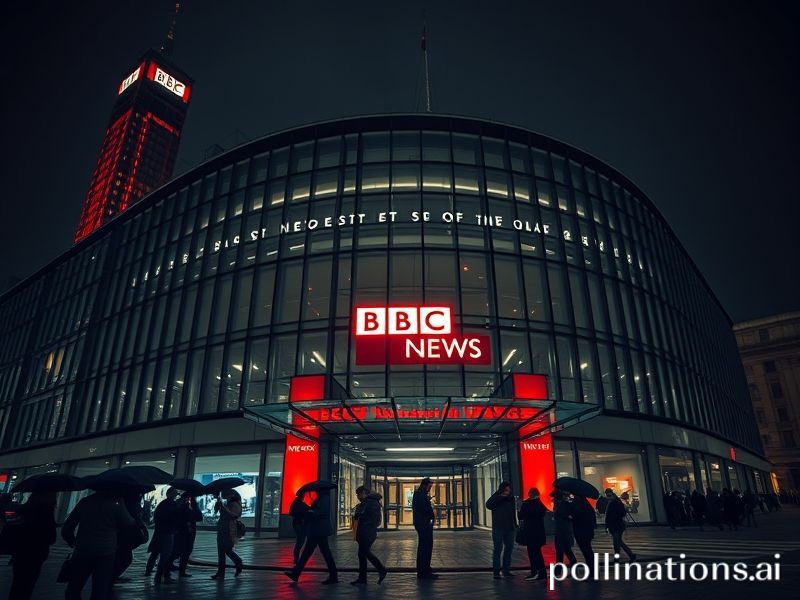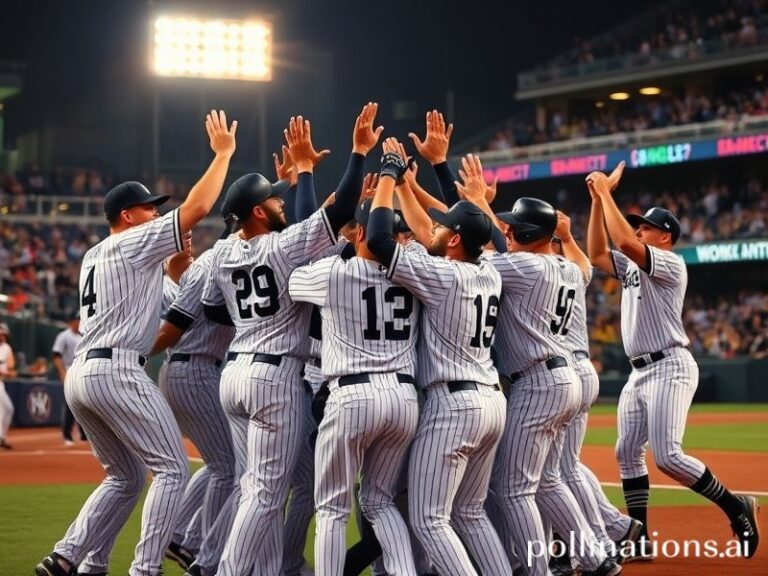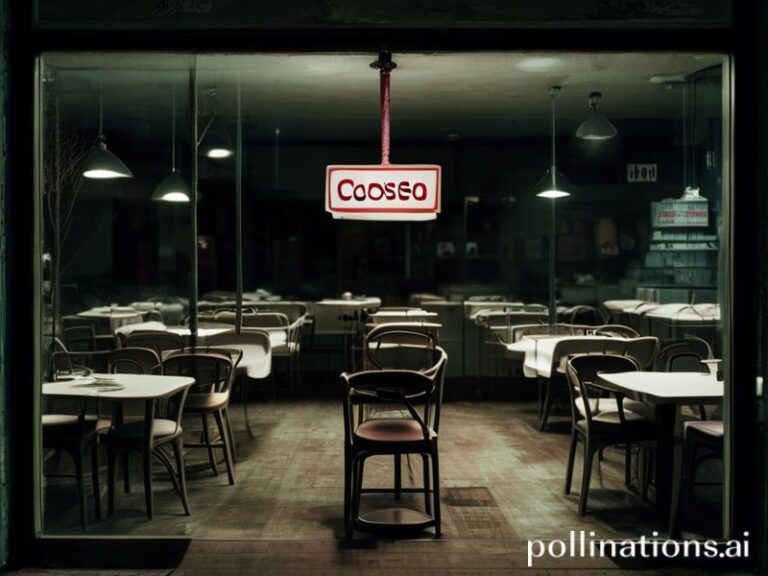Auntie’s Global Echo: How the BBC Still Holds the World’s Remote Control—and Its Nerves
The World According to Auntie: Why the BBC Still Matters (and Still Gets Yelled at by Everyone)
By the time the Greenwich pips finish pipping, the British Broadcasting Corporation has already been accused of colonial nostalgia, metropolitan elitism, and—on a slow Tuesday—ruining the nation’s tea by running a story about oat milk. Such is the lot of the planet’s most famous 101-year-old public service broadcaster, still somehow both revered and reviled in 200+ countries, territories, tax havens, and diplomatically ambiguous islands.
In Jakarta, a ride-hail driver streams BBC Indonesian’s live blog while waiting for a fare, nodding along to bulletins about Gaza as if the carnage were happening one suburb over. In Lagos, traders haggle over tomatoes with the World Service crackling from a battered transistor—part oracle, part background muzak. Meanwhile, in a glass box in London, editors argue whether a 15-second TikTok of a Ukrainian drone strike needs a trigger warning or merely the standard “graphic content” label. The answer, inevitably, is “both,” because the BBC’s real export is not news but an exquisite form of Anglo-Saxon guilt.
The numbers are almost comically large: 433 million people per week, 41 languages, one website that still looks like it was designed during the Crimean War and refuses to die. That reach makes the Beeb less a broadcaster than a planetary habit. When the Chilean peso wobbles, traders reach reflexively for the BBC’s USD/CLP ticker even though the Bank of England has roughly the same influence over Santiago as the Queen’s corgis. When Burkina Faso’s junta shuts down local stations, citizens VPN their way to BBC Afrique’s Facebook Live like teens sneaking into a speakeasy. The corporation’s logo is now less a brand than a secular crucifix—something to clutch in times of panic.
Of course, the British themselves reserve the right to loathe their own creation. The Tories think it’s a hive of woke Marxists; Labour thinks it’s a Tory mouthpiece; the Scots think it’s Westminster propaganda wrapped in a weather forecast; and the Welsh just want more rugby highlights. Each faction funds the licence fee with the enthusiasm of a hostage wiring his own ransom. The contradiction is delicious: the world’s most trusted voice is funded by a nation that no longer trusts anything, least of all itself.
Abroad, the Beeb’s soft-power halo is dimming but still visible. China blocks its site, then quotes its climate coverage when convenient. Russia jammed its shortwave in 2022, yet Moscow talk-show hosts still wave printouts of “BBC investigations” the way medieval monks flourished papal bulls. Even the Taliban, who banned television in the 90s, now run a Pashto-language WhatsApp group that quietly reposts BBC dispatches—presumably after redacting any mention of girls learning algebra.
The existential joke is that while everyone fights over the BBC’s bias, the concept of “bias” itself has become a currency. Nigerian podcasters accuse it of “Western framing,” QAnon forums scream “deep-state puppet,” and Indian nationalists circulate screenshots of “BBC Hindi” memes that the actual BBC never produced. In the attention economy, Auntie’s brand is so potent that even fake BBC logos travel faster than verified ones. The corporation’s legal department now spends half its time issuing takedown notices to teenagers in Ulaanbaatar who’ve Photoshopped exploding pandas under a red-and-white banner.
What keeps the machine wheezing along is not its vaunted impartiality but its archive of English understatement. When a cyclone obliterates a Pacific atoll, the headline still reads “Severe Weather Disrupts Local Services”—the same tone once used for a cancelled village fête. This cultivated dryness is Britain’s last imperial export: a linguistic Valium that calms the global pulse rate by 3-4 bpm, just enough to prevent outright panic.
And so the world tunes in, half out of habit, half out of hope that somewhere amid the drone footage, cricket scores, and obituaries of 102-year-old beekeepers, the BBC will still tell us what on earth is going on without trying to sell us crypto. It probably won’t succeed, but at least it’ll sound polite while failing. In an age of infinite hot takes, that counts as a miracle—one licence fee at a time.







